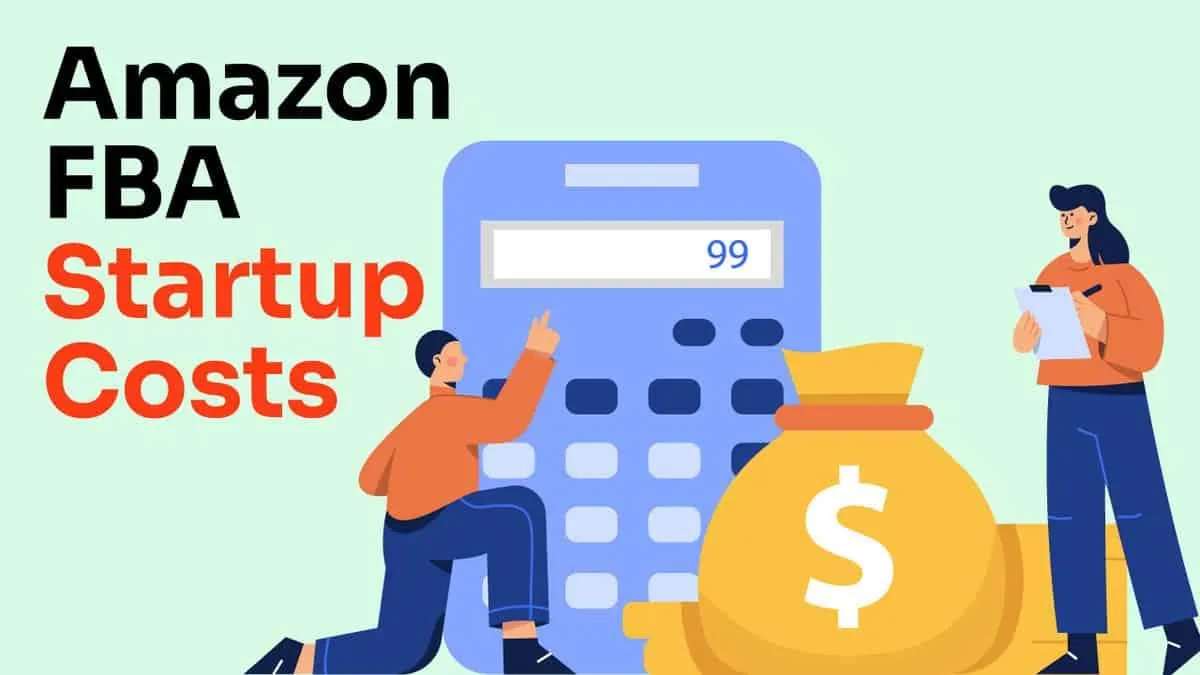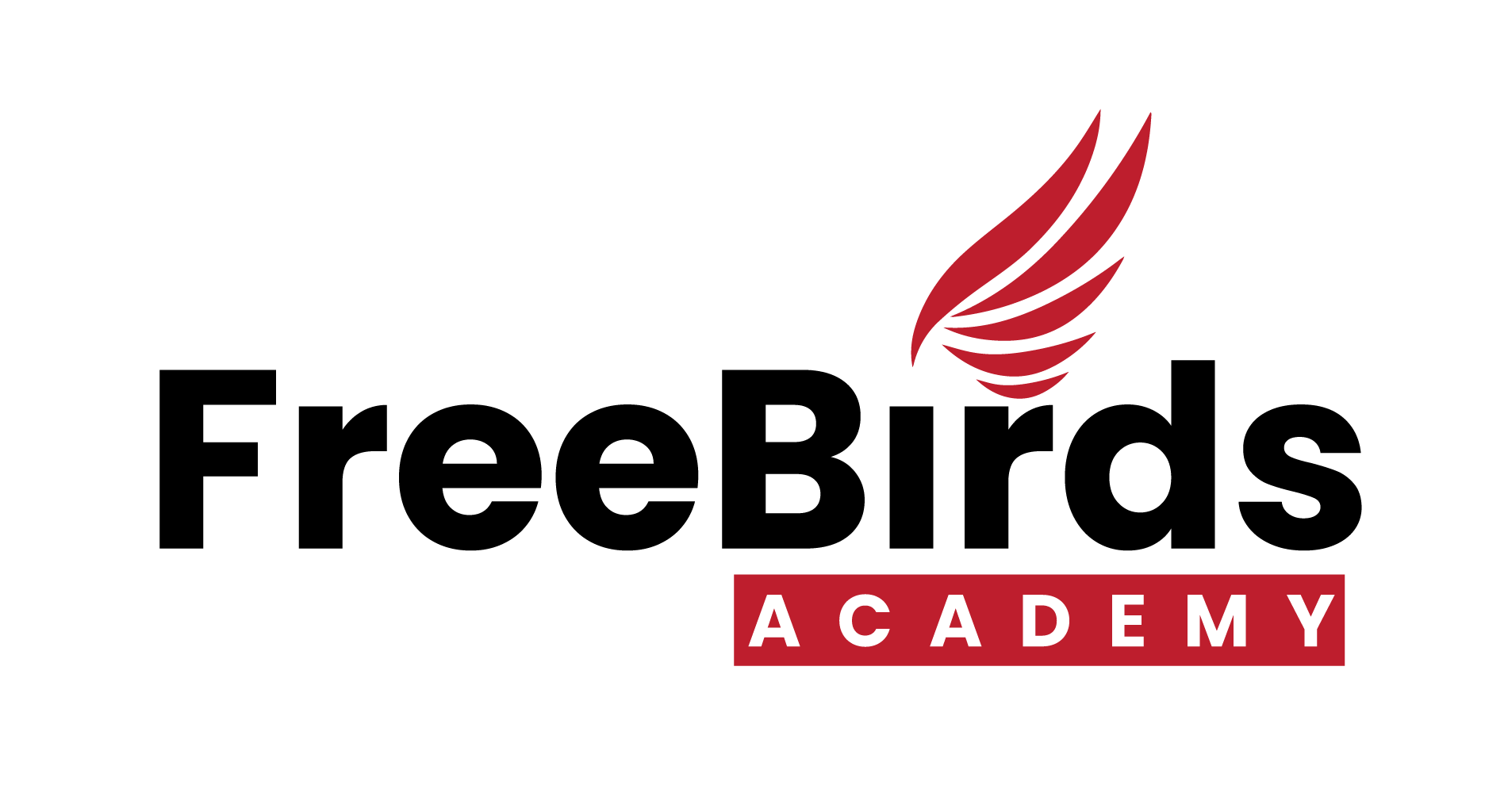
How Much Does It Cost To Start Amazon FBA Business
Nowadays, opening an Amazon FBA business is considered one of the smartest financial moves you can make – but you must do it right!
Before diving into it, there is a critical question you should ask yourself:
How much does it cost to start an Amazon FBA business?
The answer depends on:
Your choice of business model (Retail Arbitrage, Wholesale, or Private Label)
How much are you willing to invest in
How serious you are about building a long-term, scalable brand
🔍 What You Will Learn in This Guide:
Practical startup costs breakdown
Business models comparisons side-by-side
Why Private Label Amazon is the best long-term strategy
Common money-wasting mistakes and how to avoid them
💡 Planning to Build a 6- or 7-Figure Brand?
Whether you're just start out or are scaling up your business, having an in-depth understanding of the cost structure will benefit you in:
Making smarter decisions
Avoiding beginner pitfalls
Having a faster and more reliable launch
🎯 Ready to Follow a Proven System?
If you want a clear, step-by-step path to success, our Advanced Solo FBA Mastery at Freebirds Academy is built to guide you through every phase of launching your Amazon Private Label business—from product research to your first sale and beyond.
👉 Let’s dive in and break down the numbers.
1. Overview of Amazon FBA Business Models
Before diving into calculating the cost of starting an Amazon FBA business, understanding the three most common business models of it is essential. Each packs its own:
Cost structure
Learning curve
Long-term potential
🛒 Retail Arbitrage/Online Arbitrage
The act of buying discounted products either online or from local retailers (Target, Walmart, Costco,...) and then resell them on Amazon
Pros:
Low startup cost
Turnaround fast
Avoid the hassle of supplier sourcing and building brand
Cons:
Difficulty in scaling up
Inconsistency in inventory sources
Occasionally deal with high competition and restriction
📦 Wholesale
Purchasing branded products in bulk from authorized distributors or manufacturers and reselling them.
Pros:
Easier and quicker sales
Less creative overhead
Products already in demand
Cons:
High upfront capital
Gated categories
Buy Box competition
🏷️ Private Label
The process of creating your own branded version of an existing product—often by modifying or repackaging.
Pros:
Full brand ownership and control
High profit margins
Amazon Brand Registry access
Long-term scalability
Cons:
High startup cost
Requires research, sourcing, branding, and marketing knowledge
(Spoiler: Private Label is where real business assets are built.)
2. Cost Comparison by Business Model
The startup cost for Amazon FBA can vary significantly depending on the business model you choose. Some approaches require just a few hundred dollars to get started, while others demand a few thousand to build a long-term asset.
I will breakdown some of the most common startup expenses across the three major models:
Retail/Online Arbitrage, Wholesale, and Private Label.
📊 Key Cost Categories Include:
✅ Amazon seller account
✅ Inventory (varies widely)
✅ Product research tools
✅ Shipping & FBA fees
✅ PPC advertising (for some models)
✅ Branding, photography, and legal setup (for Private Label)
📌 Quick Summary Before the Table:
Retail Arbitrage is great for beginners with small budgets, but offers limited scalability.
Wholesale is capital-heavy but faster to generate sales.
Private Label requires the highest upfront cost—but gives you full control, branding power, and long-term scalability.

3. Why Private Label is the Best Long-Term Strategy
Private Label stands out from all other Amazon FBA models—and here’s why:
🔑 Full Control
You’re not just selling someone else’s product, you actually own the brand, which give you control over:
Product design and packaging
Listing optimization
Pricing strategy
Customer experience and reviews
💰 Higher Profit Margins
Since you're not competing for the Buy Box or splitting profits with other sellers, Private Label often yields 30%–50% margins, especially when you:
Source strategically
Optimize listings
Leverage Amazon PPC
🚀 Scalability & Brand Value
Private Label gives you the flexibility to:
Launch multiple private label products on Amazon under one brand
Build a recognizable name
Sell the business as a brand asset in the future
🔥 In short: You’re actually building an online business, not just flipping products.
Check out the video below to see me explain it 👇
4. The Advanced Solo FBA Mastery – Freebirds Academy
If you’re serious about building a successful Amazon FBA Private Label business, you don’t have to figure it all out alone.
🚀 Introducing: The Advanced Solo FBA Mastery
The Advanced Solo FBA Mastery is a comprehensive, step-by-step program created by Freebirds Academy to guide aspiring sellers through the entire process of launching and scaling Amazon Private Label brands.
📦 What’s Included:
✅ Product research strategies to find high-potential niches
✅ Supplier sourcing and negotiation methods
✅ Branding & packaging guidelines for maximum impact
✅ Listing creation and SEO optimization
✅ Amazon PPC setup and ad scaling
✅ Growth roadmap to turn your product into a scalable brand
🎯 Whether you're just getting started or need help turning momentum into real profit, the Advanced Solo FBA Mastery gives you the blueprint to move forward with confidence.
👉 Learn more and get started today at Freebirds Academy.

5. Example Startup Scenarios
Depending on your chosen business model, here’s a rough estimate of what it typically costs to get started with Amazon FBA:
🛒 Retail/Online Arbitrage Starter
💵 Estimated Budget: $300–$700
Ideal for learning the FBA system on a low budget
Fastest way to start, but limited scalability
🏬 Wholesale Starter
💵 Estimated Budget: $2,000–$5,000
Great for those who want faster product velocity
Requires bulk purchases and approvals from suppliers
🏷️ Private Label Starter
💵 Estimated Budget: $3,000–$7,000+
Best long-term strategy for building a real brand
Covers inventory, branding, photography, PPC, and more
6. Tips to Reduce Costs & Avoid Mistakes
Starting an Amazon FBA business doesn't have to drain your wallet—especially if you follow smart strategies from the start.
Here are some proven tips to keep costs low and avoid beginner mistakes:
✅ Start Lean, Then Scale
Avoid going “all-in” on your first product. Test a small batch, learn the process, and scale once you validate demand.
🧪 Use Free Trials and Discounted Tools
Tools like Helium 10, Jungle Scout, and Keepa often offer free or low-cost trials. Take advantage of them before committing long-term.
💵 Leverage Cashback and Rewards Apps
Apps like Rakuten, Capital One Shopping, and Honey can help you recover some money on software, shipping, or sourcing.
🏘️ Work With Local Suppliers First
To avoid high shipping costs and import delays, consider working with local or domestic suppliers when possible—especially for your first launch.
🔍 Don’t Skip Product Research
Guessing is expensive. Use data-driven research methods to validate product ideas before investing in inventory.
👥 Get Support or Mentorship
The learning curve is steep. Joining a program like Freebirds Academy’s Advanced Solo FBA Mastery can save you time, money, and costly missteps.
7. Perspective: Amazon FBA vs Traditional Businesses
One of the biggest advantages of starting an Amazon FBA business is the relatively low barrier to entry—especially when compared to traditional brick-and-mortar ventures.
🏢 Traditional Business Startup Costs:
Launching a conventional retail business often requires:
📍 A leased storefront
👷♀️ Staff hiring
📦 High inventory levels
💰 $200,000–$300,000+ in upfront capital
📦 Amazon FBA Selling Startup Costs:
With Amazon FBA, you can:
Start with as little as $3,000–$7,000
Skip the need for physical retail space
Rely on Amazon’s fulfillment network to handle storage, shipping, and customer service
💡 Why This Matters:
Amazon allows you to:
Test a product without massive financial risk
Scale gradually as you validate demand
Focus on branding, marketing, and sales instead of logistics
⚖️ For modern entrepreneurs, Amazon FBA is one of the most accessible, scalable, and proven business models available—offering a realistic path to profitability without requiring six-figure startup capital.
8. Final Thoughts
Starting your Amazon FBA journey is an exciting opportunity—
but remember, it’s a business, not a side hustle to take lightly.
💵 Startup costs can range from a few hundred to several thousand dollars, depending on the business model you choose.
Whether you're starting lean with retail arbitrage or going all-in on private label, what matters most is having a clear strategy and avoiding costly missteps.
🎯 If you're serious about building a real, sellable asset...
The best investment you can make does not lie in inventory—it’s in the right education and guidance.
That’s exactly what the Advanced Solo FBA Mastery by Freebirds Academy delivers:
A proven roadmap from product idea to successful launch
Avoid months of trial and error
Build a brand with confidence and clarity
🚀 Ready to build your Amazon FBA businesses the smart way?
Learn more about the Advanced Solo FBA Mastery and start turning your Amazon goals into reality—today.


